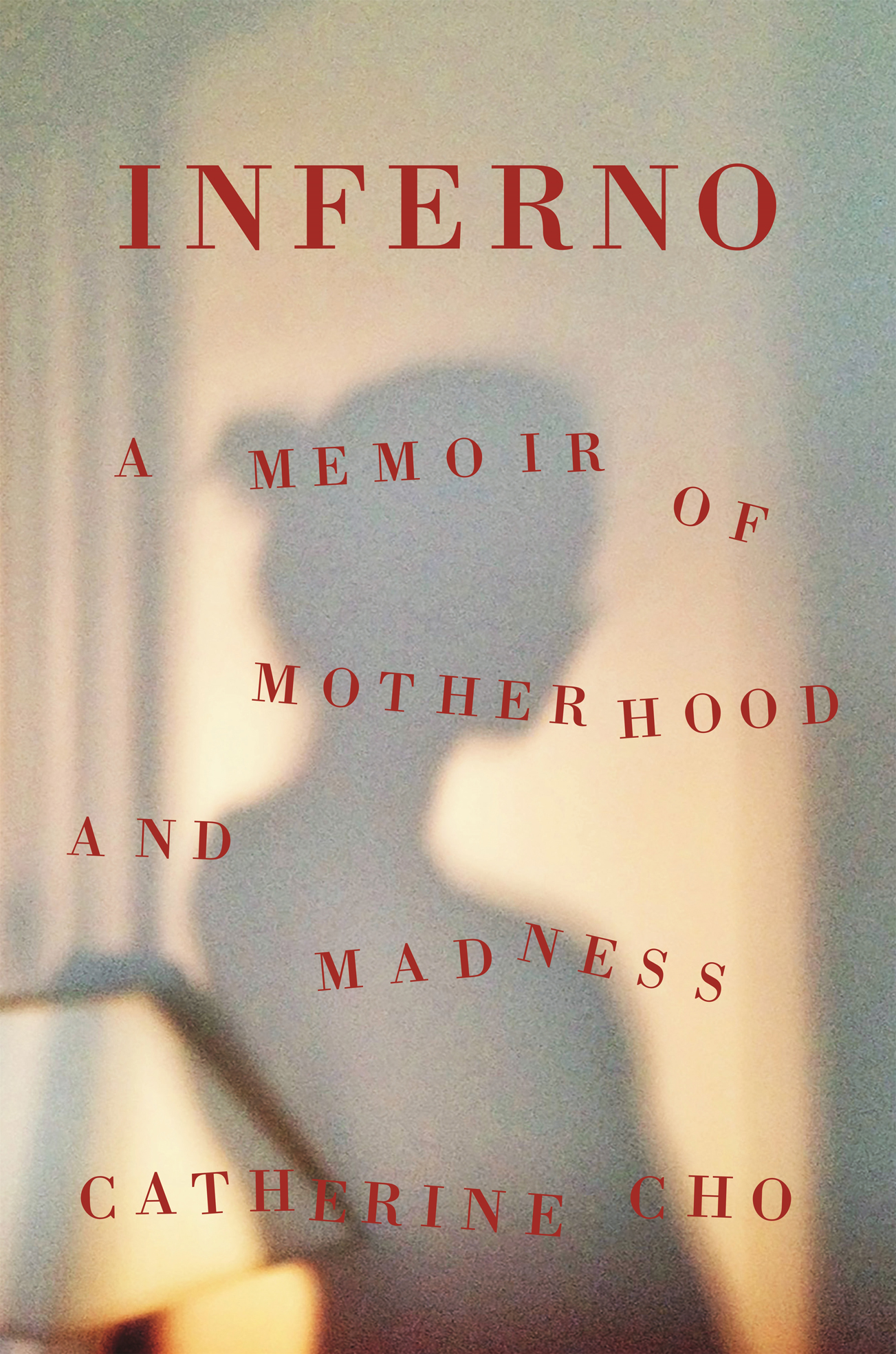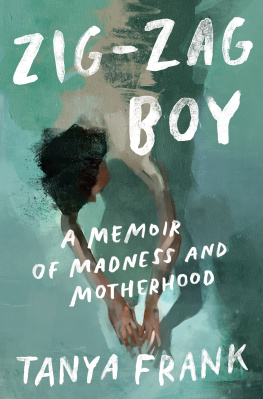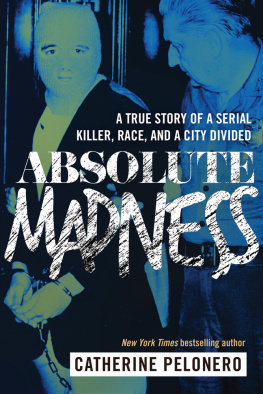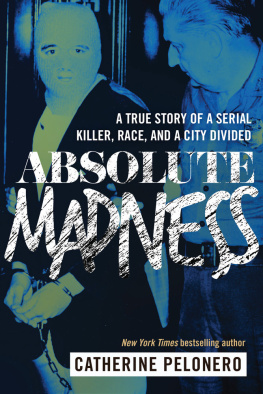Catherine Cho - Inferno: A Memoir of Motherhood and Madness
Here you can read online Catherine Cho - Inferno: A Memoir of Motherhood and Madness full text of the book (entire story) in english for free. Download pdf and epub, get meaning, cover and reviews about this ebook. year: 2020, publisher: Henry Holt and Co., genre: Detective and thriller. Description of the work, (preface) as well as reviews are available. Best literature library LitArk.com created for fans of good reading and offers a wide selection of genres:
Romance novel
Science fiction
Adventure
Detective
Science
History
Home and family
Prose
Art
Politics
Computer
Non-fiction
Religion
Business
Children
Humor
Choose a favorite category and find really read worthwhile books. Enjoy immersion in the world of imagination, feel the emotions of the characters or learn something new for yourself, make an fascinating discovery.

- Book:Inferno: A Memoir of Motherhood and Madness
- Author:
- Publisher:Henry Holt and Co.
- Genre:
- Year:2020
- Rating:4 / 5
- Favourites:Add to favourites
- Your mark:
- 80
- 1
- 2
- 3
- 4
- 5
Inferno: A Memoir of Motherhood and Madness: summary, description and annotation
We offer to read an annotation, description, summary or preface (depends on what the author of the book "Inferno: A Memoir of Motherhood and Madness" wrote himself). If you haven't found the necessary information about the book — write in the comments, we will try to find it.
Inferno: A Memoir of Motherhood and Madness — read online for free the complete book (whole text) full work
Below is the text of the book, divided by pages. System saving the place of the last page read, allows you to conveniently read the book "Inferno: A Memoir of Motherhood and Madness" online for free, without having to search again every time where you left off. Put a bookmark, and you can go to the page where you finished reading at any time.
Font size:
Interval:
Bookmark:


The author and publisher have provided this e-book to you for your personal use only. You may not make this e-book publicly available in any way. Copyright infringement is against the law. If you believe the copy of this e-book you are reading infringes on the authors copyright, please notify the publisher at: us.macmillanusa.com/piracy.
For James and Cato, the light in my life
According to Korean tradition, after a baby is born, mother and baby do not leave the house for the first twenty-one days. There are long cords of peppers and charcoal hung in the doorway to ward away guests and evil spirits. At the end of the twenty-one days, a prayer is given over white rice cakes. After one hundred days, there is a large celebration, a celebration of survival, with pyramids of fruit and lengths of thread for long life.
When my son was born, I was reminded of this tradition daily by my family and by my in-laws, because we were breaking all the rules. I took a shower after birth, ignoring the weeklong rule of no water on the mothers body, and my first meal wasnt the traditional seaweed soup, it was sushi. We opened our doors, let in guests, bundled my son in layers, and took him on walks in the falling snow. And then we did a fateful thing: we left our home.
My son was two months old when we embarked from London for an extended trip across the United States. I had come up with a plan to use our shared parental leave to do a cross-country tour of family and friends and introduce them to our son. I didnt see why we had to pay attention to Korean traditions, or superstitions, as I thought of them. As Korean Americans born and raised in the United States, my husband and I had never paid much attention to the rules, and I had always thought our families didnt either. Except that suddenly, with the birth of a baby, the rules seemed to matter.
We had avoided any evil spirits from California to Virginia, but perhaps wed just been running away from them, because they found us at last at my in-laws house in New Jersey. My son was eight days shy of his hundred-day celebration when I started to see devils in his eyes.
My husband would take me to the hospital emergency room; by then I would be screaming and tearing off my clothes in the waiting room. I was admitted to the hospital, where I spent four days without sleeping.
In desperation the doctors gave me a cocktail of drugs that my body rejected; I still wouldnt sleep.
The decision was made that I should be admitted to a psychiatric ward. I was checked into an involuntary psych ward in Paramus, New Jersey, which is where I am now.
Its difficult to know where the story of psychosis begins. Was it the moment I met my son? Or was it decided in the before, something deeper rooted in my fate, generations ago?
My first memory of psychosis is the light.
A bright light. Im lying on a bed. The room is white, stark, and plain. Im wearing a hospital robe; it feels like paper against my skin. I try to raise my arms, but I cantthere are restraints crossing my body, snaked around my wrists. The restraints are heavy and made of dark cloth, loops that cut into my skin. My hands are clenched. I notice that there are strands of hair in them. There are metal curtains around me; they fold like an accordion.
I try to lift my head, but I can only move it from side to side. I see a man, standing in the corner. Hes looking at a clipboard. He has dreadlocks, and hes wearing glasses. He looks up and smiles at me gently.
Hi, he says. His voice is calm, grave.
Nmandi, I say, reading his name tag.
He looks surprised. Yes, Im Nmandi. Im a nurse here. He points to his chest. Do you remember how you got here? he asks.
I shake my head. I dont know. I have a vague memory of tearing off my clothes in a hospital waiting room. I remember terror. I can still hear the sounds of screams in my ears. I think they were my own.
My lips are dry, and I try to clear my throat. I find my voice. I want to feel something certain, something to take away the fear. Nmandi is looking at me kindly.
Nmandi, do you believe in God? I ask.
He pauses, and he looks thoughtful.
Fifty-fifty, he says. But Im okay with that.
He walks over to me and takes my hand.
Do you see me? he asks.
I do, I say. And I do see him, in the fullest sense of the word. Hes Nmandi, the one who speaks with his hands. Someone who comforts those who mourn and helps those who are afraid. But I also know that he must be the archangel Michael, come to deliver us from the demons.
The rules of time dont exist in a psych ward. Each of us counts the time differently. There are some who count in days, others in weeks and months. And then there are those who dont count the time at all, theyve been here for so long. The ones who count in days, they are the ones who pace. I am one of them.
Im wearing foam slippers, pale blue with smiley faces on them, government issued. I claimed them from the trash bin. Theyre now a treasured possession.
I walk past the glass enclosure of doctors, past the TV room where the sound of the twenty-four-hour news cycle is blaring, past the activity room with the conference table, the hallways of resident rooms, to the heavily locked doors, and then back again.
Im not sure how long Ive been here. I think its a few days. But I count today as day one. The first day that Im aware of where I am.
In my pocket, I have a folded piece of paper where Ive written my truths in purple marker. These are words that I cling to as reality, or at least the reality I hope for. Ive repeated the phrases so often, I know them like the words of a prayer.
I am alive. Real.
I am married to James. Real.
James loves me. Real.
I have a son. Real.
My son is three months old. Real.
My husband and son are waiting for me. Real.
I have postpartum psychosis. Real.
I have postpartum psychosis. I had never understood what it meant to doubt your own sense of reality, to be removed from time. The closest way I can describe it are those moments in dreams where youre not sure if youre awake or still sleeping, but in psychosis, no matter how many times you try, you dont wake up.
The medical definition of psychosis is a mental illness in which an individual has difficulty determining what is real and what is notits a loss of objective reality.
I had never heard of postpartum psychosis before my own diagnosis. Pregnancy had brought a list of worriesepisiotomies, prolapse, preeclampsia. I was so preoccupied with the idea of losing my body, it had never occurred to me that I might lose my mind.
When I woke up this morning, my memory was in fragments. I was flooded with glimpses of past versions of my life, real and not real, as though Id been copying and pasting a paragraph of my life on repeat.
When I reached for my body, I didnt recognize it. My breasts were a network of red angry knots from not breast-feeding, my ribs were protruding, and I could feel the edges of my collarbone. I was wearing a hospital robe, and my wrists were sore with the marks of restraints. My hair was damp, tied in a strange waysomeone else must have tied it. I wasnt wearing a wedding ring. Wasnt I married? I was sure that I was. I remembered a lace dress, roses and ivy in my hands. I tried to remember the song that played at our wedding. But which wedding? I remembered a few; the grooms face was blurred.
Font size:
Interval:
Bookmark:
Similar books «Inferno: A Memoir of Motherhood and Madness»
Look at similar books to Inferno: A Memoir of Motherhood and Madness. We have selected literature similar in name and meaning in the hope of providing readers with more options to find new, interesting, not yet read works.
Discussion, reviews of the book Inferno: A Memoir of Motherhood and Madness and just readers' own opinions. Leave your comments, write what you think about the work, its meaning or the main characters. Specify what exactly you liked and what you didn't like, and why you think so.







